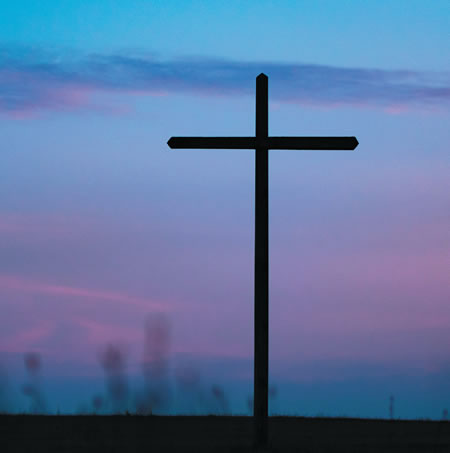
Chileans are hardworking people. Mothers and fathers instill their work ethic in their children from an early age, in many families that I have come to know, by instruction and by example.
“Don’t just laze around, there’s work to be done,” a parent may typically declare to their children on a Saturday morning. “In this place, all the monkeys dance!”— an expression which may refer to a circus or carnival act.
 No one gets to sit around, in other words. You, get dressed and come with me to the open-air market, help me carry the potatoes and produce we’re going to buy. While I’m gone, you two sweep the floors and wash up, dry and put away the dishes. We’ll wax the floors when I get back, and then get ready for lunch. Let’s go!
No one gets to sit around, in other words. You, get dressed and come with me to the open-air market, help me carry the potatoes and produce we’re going to buy. While I’m gone, you two sweep the floors and wash up, dry and put away the dishes. We’ll wax the floors when I get back, and then get ready for lunch. Let’s go!
We missionary priests, Sisters and lay people of the Missionary Society of St. Columban could appreciate, for our part as immigrants from sometimes wealthier countries or backgrounds, how impoverished people in Chile maintained their own habits and culture of acting in community, pitching in to cover the costs of a funeral, debating in small groups two or three times a week in long sessions about the by-laws and plans of their organizations, whether sports-related, labor-union related, church-related or political.
Poverty seen as a product of structural injustice — of economic policies, social marginalization, amoral business priorities — rather than, say, just a feature of life that we can do nothing about, may be a big step to take for people not used to thinking about this ugly reality as a violence.
However, since the characteristics of poverty undeniably include poor nutrition and inadequate shelter, exclusion from employment and educational opportunities, and a lack of whatever is essential to establish and maintain a person’s basic human dignity, then its destructive effects on people are not hard to see, since it has the same effect as other forms of violence, like war, kidnapping, torture, etc. Poverty starves children, divides society, exposes people to a lack of shelter from the elements or disease, puts medical treatment out of reach, degrades self-esteem and reduces life spans.
In Chile, I discovered not only the brutality of the conditions people had to suffer, from their earliest years, but also the edifying traditions and perspectives that, in comparison, seemed absent or at least anemic in contrast to life in suburban communities in my own country and background, where families generally lacked nothing for their own wellbeing. For people from my background, there were comparatively few circumstances that could bring us all together as a community. We may even have grown up with little idea of who lived next door to us, and tried to isolate ourselves from the problems of other families.
True, there were moments of compassion and outreach even in the communities of my upbringing in the U.S., like the summer afternoon when we heard the sudden, screeching sound of a car’s brakes on the street outside our house, bringing out people from all over the neighborhood to see the twisted tricycle lying on the ground, and the crying child— physically uninjured, thank God—in his mother’s arms. The other mothers and adult women of the nearby houses quickly gathered together in the street, consoling the mother and talking among themselves in what was a rare moment of solidarity, very much like the coming together of neighbors in my Chilean neighborhood.
But in Chile’s cities and towns, it was expected and customary to come together for all of life’s moments, both planned and unexpected, and customs such as dropping in unannounced for a cup of tea and a visit, or automatically taking up a collection for a family facing funeral expenses for a departed loved one, or organizing a soup kitchen to serve hot meals to the most vulnerable children of the neighborhood at least once a day. People needed one another more frequently in areas racked by low employment and little income, and offered help spontaneously to one another.
I could see, as well, that when accidents or incidents did happen in Chile, people would gather on a spot, after the ambulance left, or in front of the house where children were abandoned to their father by a runaway mother, to discuss and analyze the sad or unexpected event for hours afterwards. There was an effort to find a consensus of the ethical lesson of the event, and discern what could be learned from it, for the accumulated wisdom of the community—a community long denied much formal education in Chile, until the reforms of the 1960s, which guaranteed free education up through secondary (high school) education.
Such generosity and compassion, union and commitment weren’t perfect, of course, human beings being what we are, but it did seem to me that mutual concern, support and growth in shared understanding was far more developed in a “developing” nation like Chile, than in our own relatively wealthier country--at least compared the middle-class life that I grew up in. I learned a lot, after arriving at our missions in Chile.
Thus, our Church’s preference for accompanying the poor, the vulnerable and the excluded, as Jesus lived His own mission, is not only an invitation to take on the sacrifice of living with less goods to be consumed and thrown away, and with greater respect for our natural home, in solidarity with those experiencing distress and discrimination.
It is, besides, an opportunity to live better, by allowing the economically challenged to teach us to build and rely on relationships within our own communities, to perceive with greater clarity the God who is close to those who have little, to discard the corrosive effects of materialistic accumulation of more things than we need, and to experience a deeper conversion to a lifestyle of deep commitment to greater economic equality in the world, a sign of the nearness of the Reign of God that Jesus inaugurated and announced as already present, and growing, a Good News that we continue to shout out to the world, just by the way we live.
Columban Fr. Robert Mosher lives and works in the U.S.